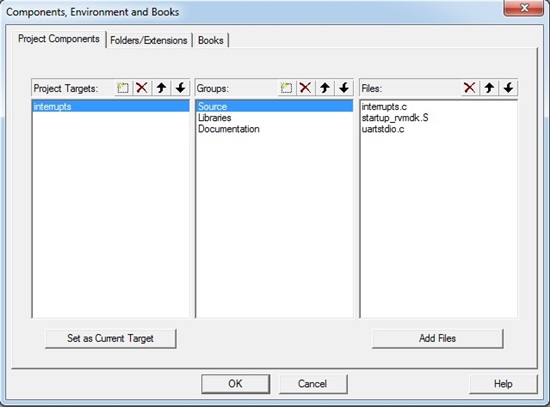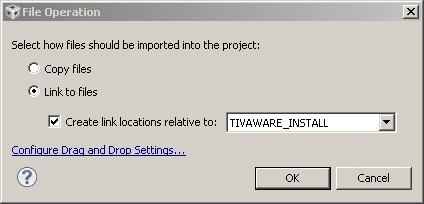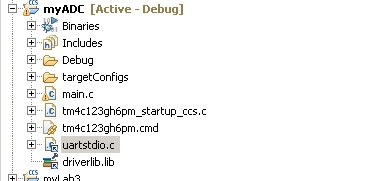For the sake of thanking this community for solving my issue ,I would like to write a post on how I overcame this issue thanks to community member Stepman .
I use the TIva C Series Launchpad .
For a program employing UART if you are getting errors like
- Description Resource Path Location Type unresolved symbol UARTprintf, first referenced in ./main.obj
- Description Resource Path Location Type
unresolved symbol UARTStdioConfig, first referenced in ./main.obj
Then you have not copied or linked your uartstdio.c file from utils/uartstdio.c
If you are getting errors like
- Description Resource Path Location Type
- #20 identifier "GPIO_PA0_U0RX" is undefined main.c /SPI line 113 C/C++ Problem
- Description Resource Path Location Type
- #20 identifier "GPIO_PA1_U0TX" is undefined main.c /SPI line 114 C/C++ Problem
Then you have to do the following steps :-
1.Right Click on your project and go to properties->arm compiler->advanced options->predefined symbols
2.Their , in the Pre-Define name area add
a)PART_TM4C123GH6PM or whichever MCU part name you are using
b)PART_IS_BLIZZARD_RB1 for the Tiva C series and PART_IS_BLIZZARD_RA1 for previous versions .
The above should also be of help when you get errors related to other Pin definitions such as for SPI and PWM pin defs.
Make sure that if you have included DEBUG in pre-define names then you include debug statements as follows
in main.c
//*****************************************************************************
//
// The error routine that is called if the driver library encounters an error.
//
//*****************************************************************************
#ifdef DEBUG
void
__error__(char *pcFilename, uint32_t ui32Line)
{
UARTprintf("Error at line %d of %s\n", ui32Line, pcFilename);
while(1)
{
}
}
#endif
Prior to the above make sure that you have added driverlib.lib in properties->arm linker->include library
Navigate to driverlib->CCS->Debug->driverlib.lib
Make sure that you also add this file to your project .
And if you are on a noob level don't forget to include TivaWare directory in your include options .




